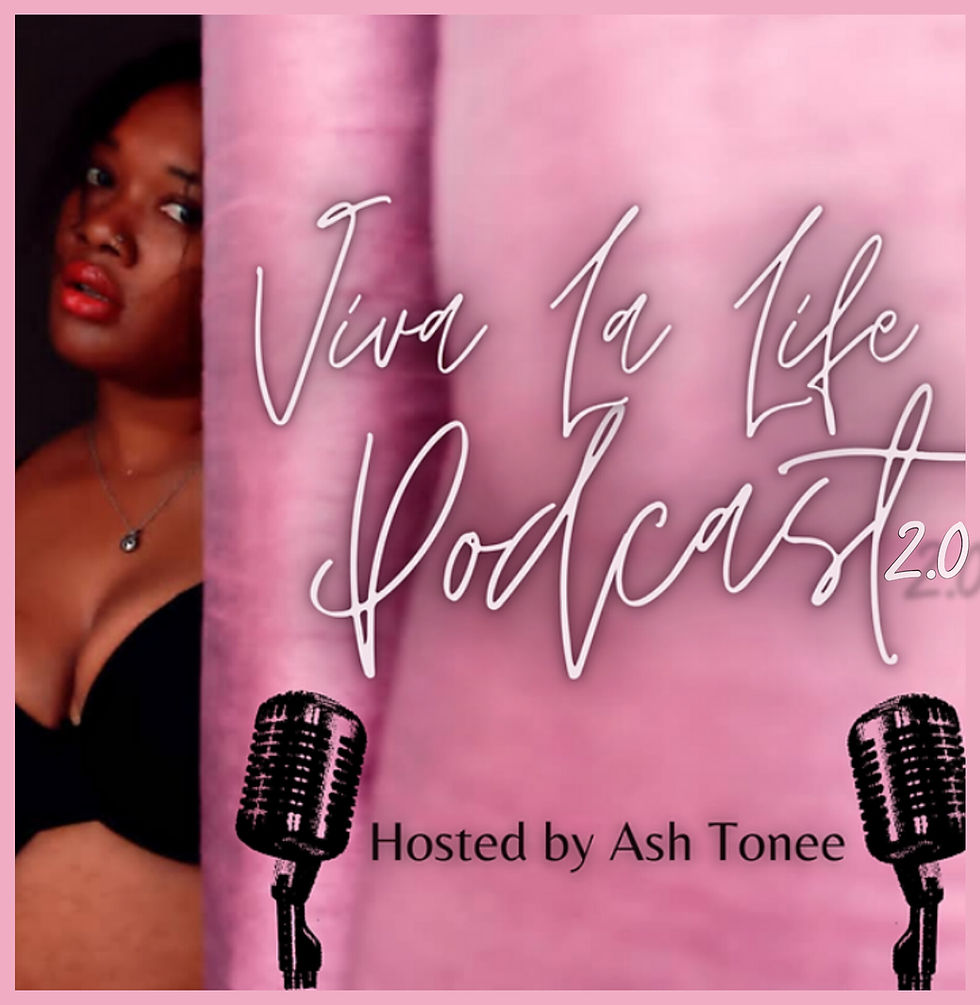The Love Imposter: Why Attachment Disguised as Love is a Silent Self-Sabotage
- Ash Tonee
- May 5
- 4 min read
Hey Viva Fam,

Let's get real for a second. We've all craved connection. It's hardwired into us. But what happens when the thing we think is love is actually something else entirely – something stickier, more demanding, and ultimately, damaging? There's a powerful truth circulating, and it bears repeating: attachment disguised as love is one of the most devastating forms of silent self-destruction.
That hits hard, right? It’s not about the rom-com grand gestures or the pop song lyrics. This is about the quiet erosion that happens when we mistake unhealthy attachment – born from fear, insecurity, or control – for the genuine article: love, which is rooted in respect, freedom, and growth.
While this is a timeless human struggle, it feels particularly relevant now. Navigating relationships in the digital age, with curated online personas and instant gratification culture, can blur the lines between genuine connection and something less healthy. But whether you're swiping right, navigating long-term partnerships, or dealing with family dynamics, understanding this "love imposter" is crucial for protecting your peace and your sense of self. This is for anyone, of any age, who's ever felt drained, diminished, or just plain off in a relationship they thought was serving them.
The Subtle Costume: What Attachment Disguised as Love Looks Like
Unlike overt toxicity, attachment disguised as love often wears a convincing costume. It can be subtle, even appearing as intense devotion or need. But peel back the layers, and you'll find its foundation isn't mutual well-being, but often:
Fear of Abandonment: Staying in a relationship long past its expiration date because the thought of being alone is terrifying. This isn't love for the person; it's attachment to the idea of not being left.
Control and Possession: Believing that loving someone means needing to know where they are, who they're with, and controlling their choices "for their own good." Love trusts and empowers; attachment often smothers.
Validation Seeking: Deriving your entire sense of worth from being in a relationship or from another person's approval. The focus isn't on loving them, but on how being with them makes you feel about yourself.
Sacrificing Self Entirely: Consistently putting the other person's needs, desires, and even moods above your own, to the point of losing your identity, hobbies, and friendships. Healthy love involves compromise, not complete self-erasure.
Drama and Intensity Mistaken for Passion: Confusing constant conflict, emotional rollercoasters, and intense highs and lows with deep connection. True love often provides a sense of safety and calm, not constant chaos.
Guilt and Obligation: Feeling responsible for another person's happiness or well-being, and staying because you feel guilty leaving or believe they can't cope without you. Love is a choice; attachment here is a perceived burden.
These dynamics can appear in romantic relationships, intense friendships, or even within family structures where boundaries are blurred and expectations are heavy. It feels like closeness, but it lacks the oxygen of true love.
The "Silent" Self-Destruction: How the Imposter Wears You Down

The devastation of this disguised attachment is often silent because it's a gradual chipping away at your core. It's not a sudden explosion, but a slow leak that drains your vitality.
Eroding Self-Worth: When your value is tied to another person or your ability to keep them happy/around, your self-esteem becomes fragile and dependent.
Losing Your Identity: Constantly molding yourself to fit someone else's needs or expectations means you lose touch with who you are outside of that connection.
Damaging Mental Health: The anxiety, stress, and emotional exhaustion from navigating these dynamics can lead to increased anxiety, depression, and a constant state of hyper-vigilance.
Isolating Yourself: Often, these attachments demand exclusivity or create friction with outside friends and family who may see the dynamic more clearly.
Blocking Healthy Connections: Being trapped in a pattern of disguised attachment prevents you from recognizing and building relationships based on mutual respect and genuine care. You might even repeat the pattern.
It's self-destruction because you are the one losing yourself in the process, often unknowingly, while believing you are simply "loving" someone deeply.
Finding Your Way Back: Towards Genuine Connection

Recognizing attachment disguised as love is the critical first step, and it takes courage and brutal honesty. Healing involves shifting from a place of fearful clinging to one of secure, authentic connection – both with yourself and others.
Get Honest with Yourself: What fears or insecurities might be driving your need for certain relationship dynamics? Journaling, therapy, or talking to a trusted, objective friend can help uncover these patterns.
Define Your Values and Boundaries: Who are you outside of your relationships? What are your non-negotiables? Knowing your values helps you build boundaries, which are essential for healthy connections.
Build Your Own Foundation: Focus on nurturing your relationship with yourself. Pursue hobbies, spend time alone, and build your self-esteem from within, rather than seeking it externally.
Observe Relationship Patterns: Look at the dynamics in your different relationships. Do you see recurring themes of control, neediness, or self-sacrifice?
Seek Healthy Role Models: Observe and learn from relationships in your life (or even in healthy media portrayals) that exemplify mutual respect, support, and individual autonomy.
Communicate Your Needs: Healthy relationships involve open and honest communication about needs and feelings. Practice expressing yourself authentically.
Be Okay with Letting Go: Sometimes, the bravest act of self-love is recognizing that a relationship, even one you believed was love, is rooted in unhealthy attachment and needs to change or end for your well-being.
Breaking free from attachment disguised as love isn't easy. It requires dismantling old patterns and confronting deep-seated fears. But the reward is the ability to form genuine connections that nourish rather than deplete you, built on the solid ground of self-respect and true, mutual care. It's about choosing self-preservation over silent self-destruction, paving the way for love that actually feels like freedom.
What's one thing you're going to pay more attention to in your own thoughts and actions this week after reading this post about attachment versus love? Let us know your intention in the comments!







Comments